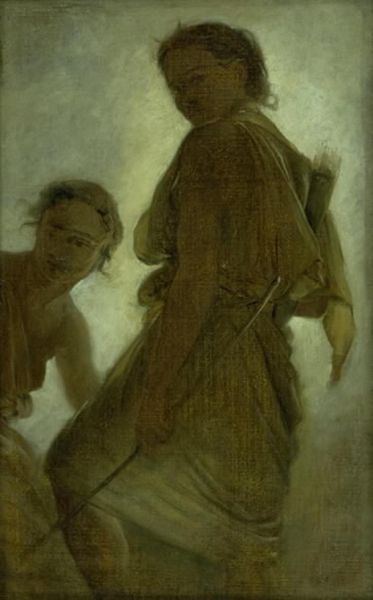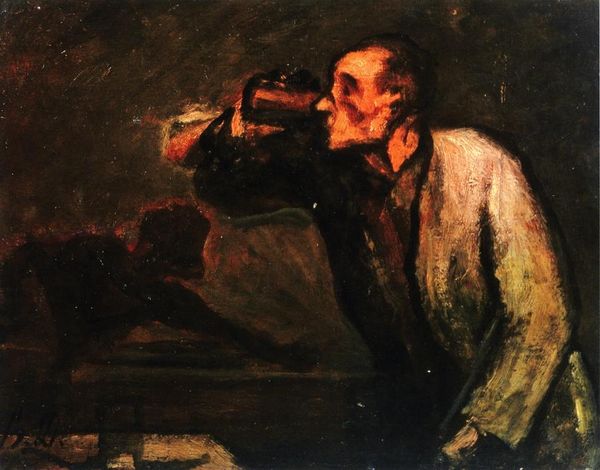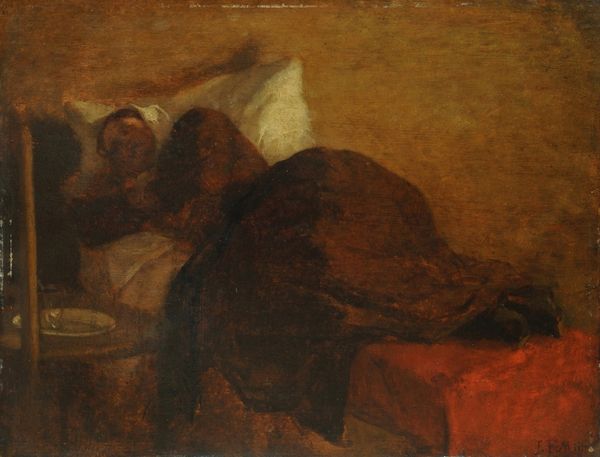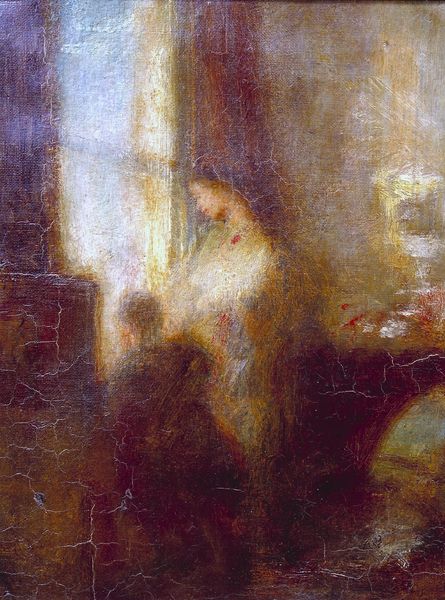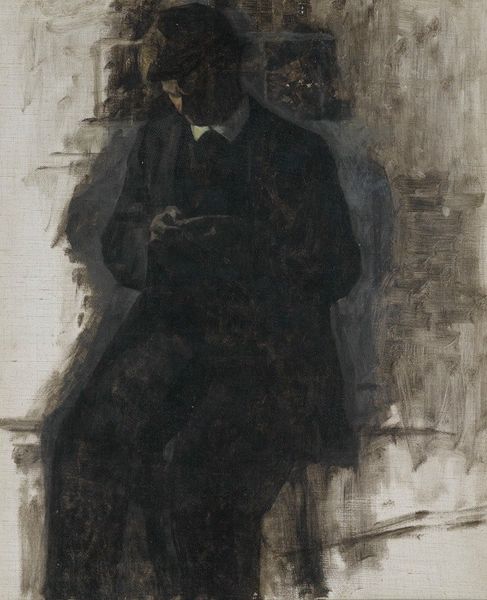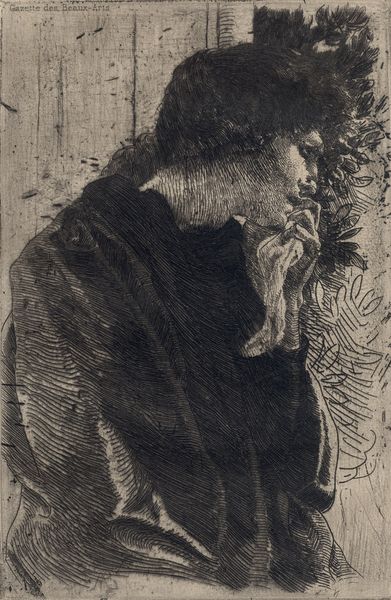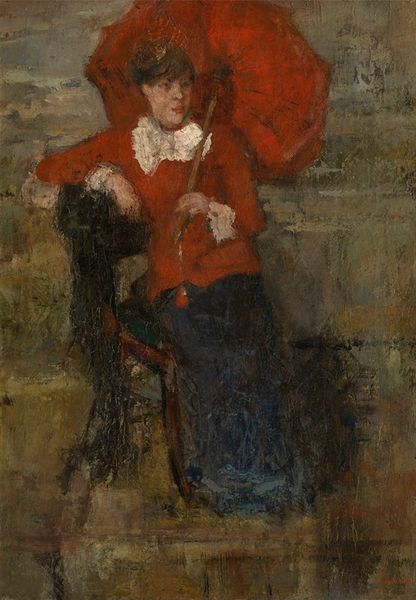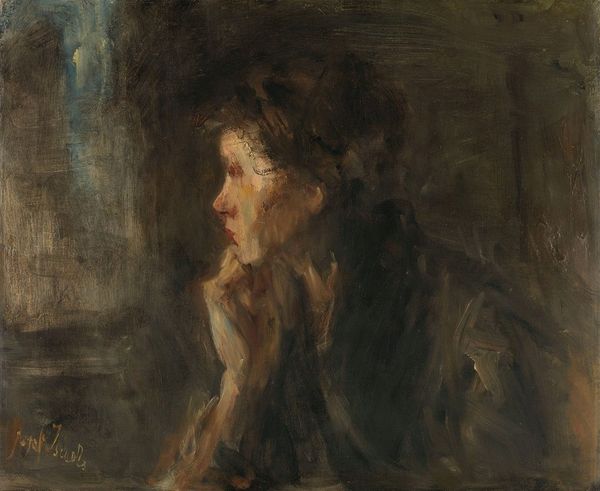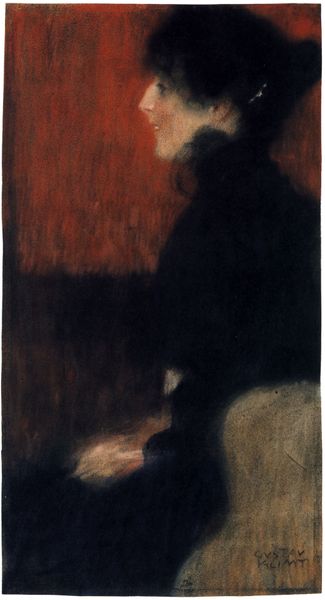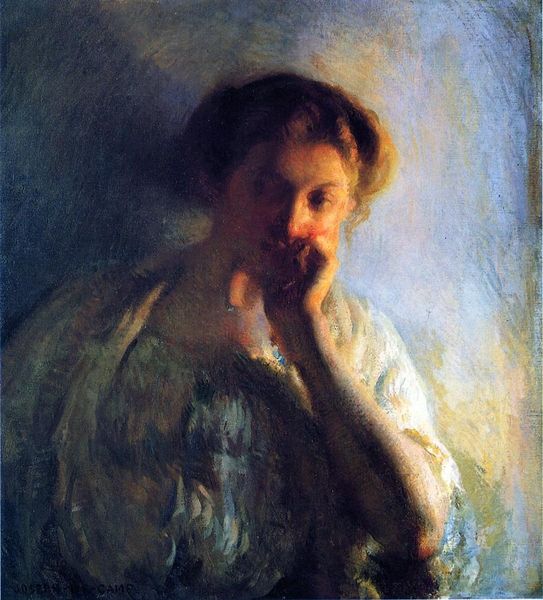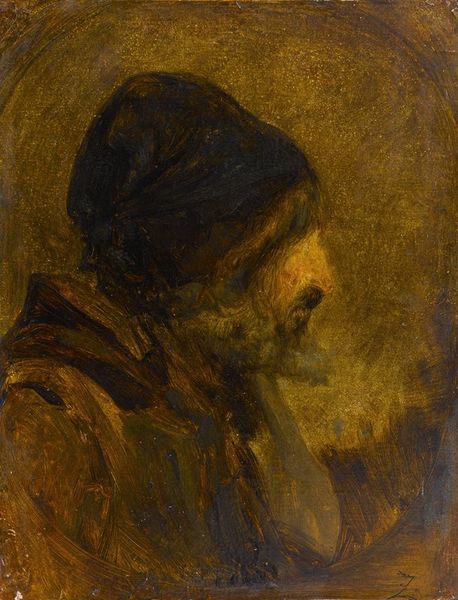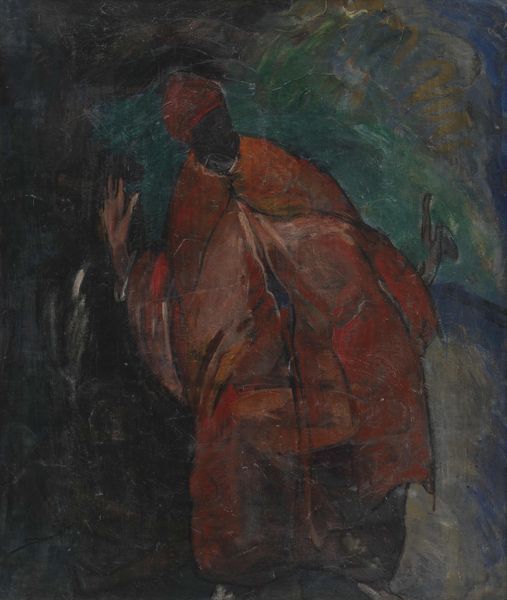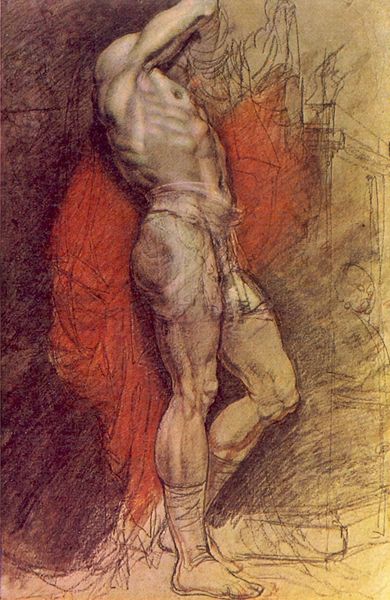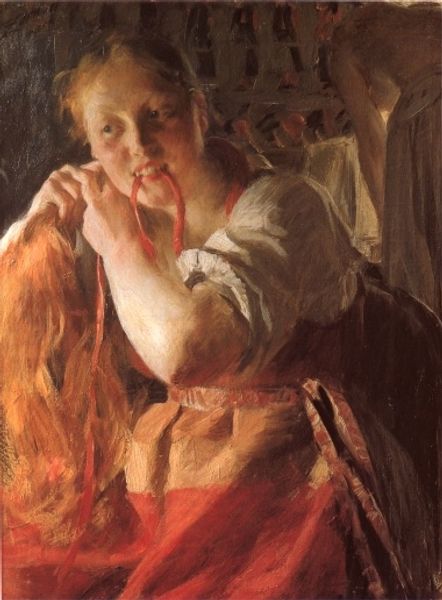
painting, oil-paint
#
portrait
#
painting
#
impressionism
#
oil-paint
#
oil painting
#
female-portraits
Copyright: Public domain
Editor: Here we have Edgar Degas’s "Melancholy" from 1874, an oil painting currently residing at the Philips Collection. The palette feels quite muted, almost monochromatic. It gives a real sense of the sitter's internal world. What strikes you about the painting? Curator: Immediately, I’m drawn to the composition's unsettling asymmetry. Notice how the figure is positioned far to the left, almost crowded by the edge of the canvas. The texture too is rather coarse. The rough brushstrokes create a sense of unease. Consider also how the restricted palette of dark reds and browns further emphasizes the subject’s sombre mood. Editor: That's interesting. I hadn’t thought about the brushstrokes adding to the mood itself. Does the contrast in the fabric colours have any relevance here? Curator: Precisely. Observe the stark white of the collar against the dominating red hues. This contrast highlights the vulnerability of the subject, drawing our gaze to her face and neck, the primary sites of expressivity in this portrait. What could the angle suggest? Editor: Maybe the unusual angle contributes to the feeling that we’re intruding on a private moment? Curator: Yes, a powerful visual choice. It’s less about precise representation, and more about capturing a fleeting emotional state through form and color. What might Degas want to portray here, exactly? Editor: I see that now, the formal elements working together to enhance that feeling. It's less a portrait and more a study in conveying melancholy itself. Curator: Indeed. The power resides in its abstractness and subtle cues that enhance the artwork’s subject and essence, inviting contemplation.
Comments
No comments
Be the first to comment and join the conversation on the ultimate creative platform.
